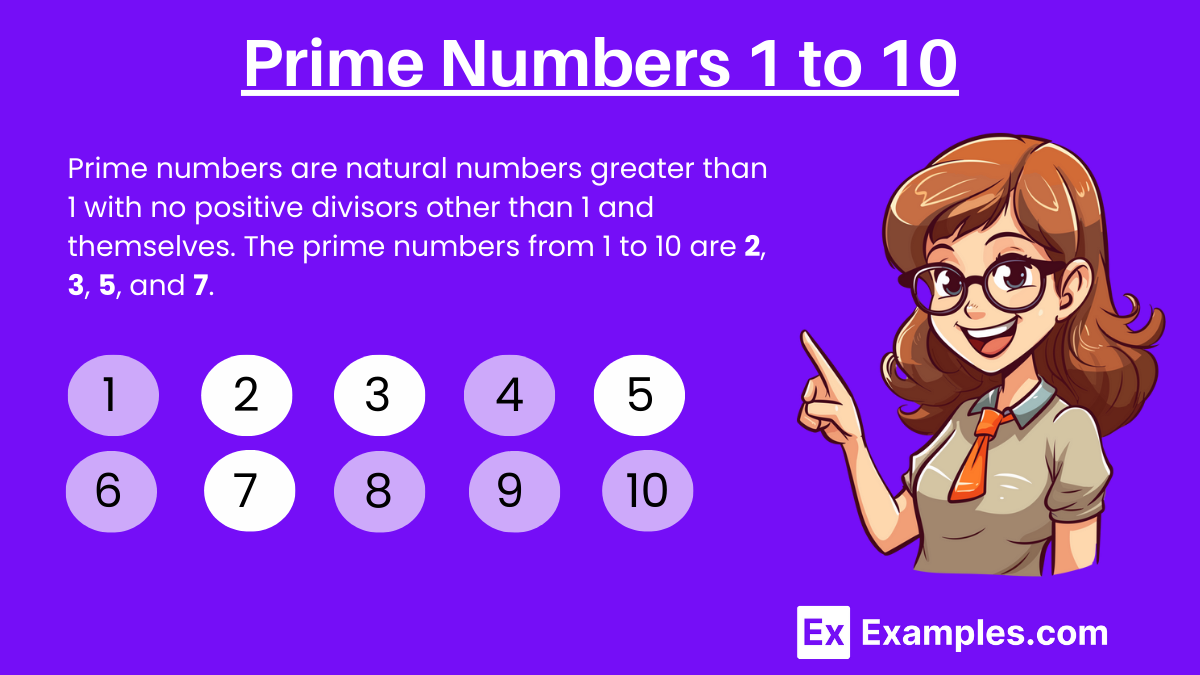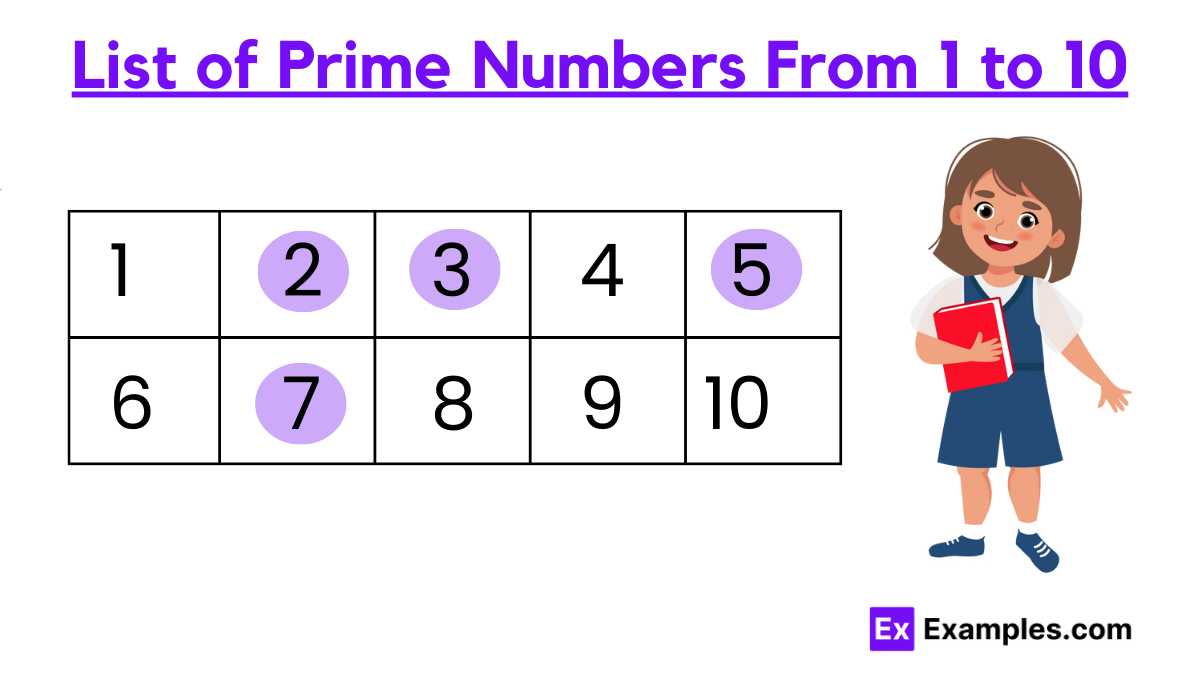Which of the following is a prime number?
4
6
7
8


Prime numbers are natural numbers greater than 1 that have no positive divisors other than 1 and themselves. In other words, a prime number is only divisible by 1 and itself, making it unique in its factors. The first ten prime numbers are crucial for understanding the basics of number theory and include the numbers 2, 3, 5, and 7. These numbers cannot be formed by multiplying two smaller natural numbers, distinguishing them from composite numbers which have additional divisors. Understanding prime numbers is fundamental in various fields of mathematics and its applications.

Download Prime Numbers From 1 to 10 in Pdf
| Prime Number From 1 to 10 |
|---|
| 2 |
| 3 |
| 5 |
| 7 |
Prime numbers from 1 to 10, including 2, 3, 5, and 7, are the building blocks of number theory. These numbers, defined by their unique property of having no divisors other than 1 and themselves, serve as the foundation for various mathematical concepts and applications. Recognizing and understanding these prime numbers is essential for exploring more complex topics in mathematics, making them a critical part of mathematical education and research.
Text prompt
Add Tone
10 Examples of Public speaking
20 Examples of Gas lighting
Which of the following is a prime number?
4
6
7
8
What is the only even prime number between 1 and 10?
2
4
6
8
Which number among the following is not a prime number?
3
5
9
7
Identify the prime number in this set:
1
2
4
6
Which of these numbers is a prime number?
10
11
12
14
What is the smallest prime number greater than 5?
7
8
9
10
Which number is a prime number?
5
8
9
10
Select the prime number from this list:
12
18
15
13
Find the prime number from the following options:
22
23
24
25
What is the only prime number that is also a single-digit number?
3
1
8
9
Before you leave, take our quick quiz to enhance your learning!

